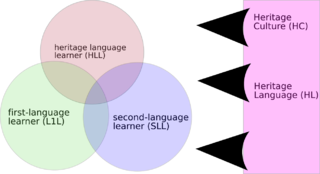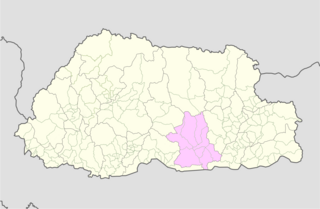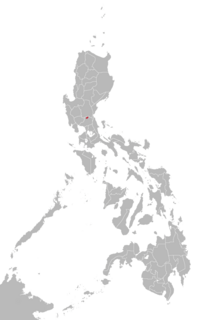This page is based on this
Wikipedia article Text is available under the
CC BY-SA 4.0 license; additional terms may apply.
Images, videos and audio are available under their respective licenses.

The IUCN Red List of Threatened Species, founded in 1965, has evolved to become the world's most comprehensive inventory of the global conservation status of biological species. It uses a set of criteria to evaluate the extinction risk of thousands of species and subspecies. These criteria are relevant to all species and all regions of the world, With its strong scientific base, the IUCN Red List is recognized as the most authoritative guide to the status of biological diversity. A series of Regional Red List are produced by countries or organizations, which assess the risk of extinction to species within a political management unit.

An endangered language, or moribund language, is a language that is at risk of falling out of use as its speakers die out or shift to speaking another language. Language loss occurs when the language has no more native speakers and becomes a "dead language". If no one can speak the language at all, it becomes an "extinct language". A dead language may still be studied through recordings or writings, but it is still dead or extinct unless there are fluent speakers. Although languages have always become extinct throughout human history, they are currently dying at an accelerated rate because of globalization, neocolonialism and linguicide.
Red Book, Redbooks, Little Red Book or Big Red Book may refer to:
Critical or Critically may refer to:

Threatened species are any species which are vulnerable to endangerment in the near future. Species that are threatened are sometimes characterised by the population dynamics measure of critical depensation, a mathematical measure of biomass related to population growth rate. This quantitative metric is one method of evaluating the degree of endangerment.

Zhemgang District, is one of the 20 dzongkhags (districts) comprising Bhutan. It is bordered by Sarpang, Trongsa, Bumthang, Mongar and Samdrup Jongkhar Districts, and borders Assam in India to the south. Administrative center of the district is Zhemgang.

In linguistics, language death occurs when a language loses its last native speaker. By extension, language extinction is when the language is no longer known, including by second-language speakers. Other similar terms include linguicide, the death of a language from natural or political causes, and rarely glottophagy, the absorption or replacement of a minor language by a major language.

The conservation status of a group of organisms indicates whether the group still exists and how likely the group is to become extinct in the near future. Many factors are taken into account when assessing conservation status: not simply the number of individuals remaining, but the overall increase or decrease in the population over time, breeding success rates, and known threats. Various systems of conservation status exist and are in use at international, multi-country, national and local levels as well as for consumer use.
Endangerment is a type of crime involving conduct that is wrongful and reckless or wanton, and likely to produce death or grievous bodily harm to another person. There are several kinds of endangerment, each of which is a criminal act that can be prosecuted in a court. In some U.S. states, such as Florida, substantially similar language is used for the crime of Culpable negligence.
An indigenous language or autochthonous language is a language that is native to a region and spoken by indigenous people. This language is from a linguistically distinct community that originated in the area. Indigenous languages are not necessarily national languages ; and national languages are not necessarily indigenous to the country.
Bade is a West Chadic language spoken by the Bade people in Yobe State and Jigawa State, Nigeria. Their traditional ruler is the Emir of Bade. Similar to many other Western African languages, Bade is a vulnerable language at great risk of extinction. With 250,000 speakers, the language and the culture of the Bade people have suffered over the last several years. As the language continues to fade, the culture and historic value associated with the language perishes as well. The local dialect is shifting from Bade to Hausa. Across West Africa, the impact on local communities through the loss of the indigenous tongues will be significant. The endangerment of the Bade language represents the worldwide language diversity that is at risk. Many African languages have only received little linguistic attention, impacting these African languages.

Southern Alta, is a distinctive Aeta language of the mountains of northern Philippines. This article will discuss Southern Alta's location, vocabulary, similarities and differences shared with other languages of the Philippines. Southern Alta is one of many endangered languages that risks being lost if it is not passed on by current speakers. Most speakers of Southern Alta also speak Filipino.





